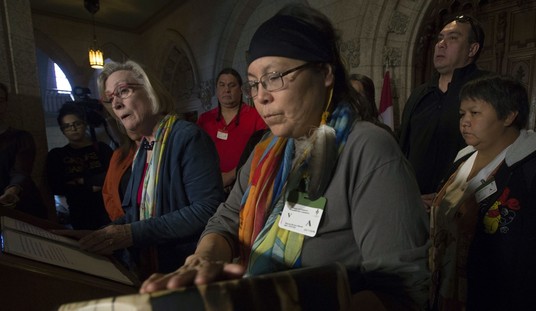Here at the 2008 Blogworld and New Media Expo, there is plenty of evidence that rapid change in the blogosphere will alter the way that bloggers blog and the news consumer gets information.
The key is content. The way content is delivered, the way in which it is used by the blogger, and the way a blog community digests it and disseminates it further is driving the innovations in blogs, extending their influence, and ultimately changing the manner by which people get information
The growth of video, spurred on by YouTube and other video sites as well as blogging platforms that have become user friendly for uploading audio and video to a webpage, has created nothing less than a revolution in blogging. In fact, the changes that are occurring are so sweeping that the terms “blog” and “blogging” — at least the way those terms are generally understood now — may be anachronistic.
In the political blogosphere, Crooks and Liars on the left and HotAir on the right have become top rated sites largely devoted to airing videos of the latest political news. Successful bloggers have incorporated video segments into their blogposts, sharing with their readers the impact that a visual accompaniment has on a story.
One recent example was the effect a video taken by a blogger had on the presidential race. A diarist at the conservative Redstate.com happened to be sitting on an airplane behind former Democratic National Committee chief Don Fowler and John Spratt, a prominent Democrat from South Carolina. Unbeknownst to the two politicians, the diarist began filming their conversation — a dialogue that showed them talking despairingly of Sarah Palin and chuckling about the GOP’s bad luck in having Hurricane Gustav make landfall just when their convention was getting underway.
The video became a sensation largely driven by bloggers who forced the mainstream media to cover the story. Fowler and Spratt eventually apologized, but in the public’s mind, the former DNC chairman was associated with the Obama campaign and it appeared that the men were unmindful of the suffering caused by the hurricane.
When I began blogging four years ago, “blogs” were little more than hobbies for most, albeit an addictive, all consuming hobby. Content was derived almost exclusively from the mainstream media and The Great Game was to catch the MSM in some revealing falsehood or obviously biased statement. The press yowled in protest whenever a particularly incisive critique made its way from blogs to other mainstream news outlets. They weren’t used to the kind of scrutiny given by bloggers back then, and their sensitivity revealed the cocoon in which the MSM wrapped itself.
Today, content is far more diversified. Largely because with the growth of the internet, there has been an explosion of content driven sites that cater to blogs and deliver information in many different ways. Many of these sites are connected to old media — most newspapers today have several blogs devoted to everything from politics to entertainment — and many of these bloggers/journalists offer opinions, do original reporting, add video, audio, access to online data bases, and, in many cases, link to a newspaper archive of riches that any blogger hungry for content can download to their heart’s content.
I see less reciprocal linking between bloggers (which used to be the goal of many writers) and more sharing of information within communities. This is perhaps another major change since I began blogging; that there are fewer and fewer single writer blogs and more emphasis on having several contributors who write for the site along with regular commenters and even discussion forums using software already built into the publishing platform. Four years ago, very few political blogs offered this kind of community.
Now, many of the largest sites on the left have become clearinghouses for ideas and debate. This has allowed progressives to organize themselves far more efficiently than their blogging brethren on the right.
This kind of networking has altered the way that political bloggers try and explain what is going on in the campaigns. One of the panel discussions at Blogworld dealt with the political blogosphere and the transition underway that will alter the dynamic on the web and perhaps force big changes in both liberal and conservative blogs.
“The Political Blogosphere in Transition” was moderated by national security writer and blogger Austin Bay (Austin Bay Blog) with panelists that included Pajamas Media’s own CEO Roger Simon, Pam Spaulding (Pam’s House Blend), Rob Neppell (Kithbridge), and Bridget Magnus (The Moderate Voice).
Much of the discussion focused on why the two sides evolved so differently. Pam Spaulding offered the idea that progressive blogs were forced by circumstance to become more concerned with driving debate on issues. She pointed out that with Republicans in control of the government, the only way for liberals to promote their agenda was through discussion and debate of the issues. This, in turn, focused the progressive bloggers’ energy on organizing to promote candidates who spoke out on issues near and dear to their hearts.
If opposition to Republicans energized progressives, it was the Iraq War that did the same for conservatives. For the right, the efforts to support the troops and the war effort was headed by the relatively small community of Milbloggers – people whose commitment to veteranss issues as well as giving reasonable and incisive critiques of strategy provided conservative bloggers with the basis for their own views on the war.
Where liberals seemed to have been motivated to organize by a yearning to get back into power, conservatives preferred a more disciplined and individualistic approach. As Rob Nepell pointed out, some conservative efforts to mirror the left have been successful, including the “Porkbusters” project, but that, by and large, conservatives remain a community of individuals.
The transition to online communities organized around issues and candidates is not far off. The progressive community has seen an enormous increase in the number and influence of state political blogs to the point that the left is now electronically organized virtually down to the street level. It is unknown what impact this development will have in a national election but if history is any guide, the effect could be profound.
The key to this transition could lie in who wins the White House. Will an Obama victory energize conservative bloggers the way that the Bush victory in 2000 motivated the left? I think such an effect would be unavoidable. As the great English man of letters Dr. Samuel Johnson once said, “Depend upon it, sir, when a man knows he is to be hanged in a fortnight, it concentrates his mind wonderfully.”
Conservatives may very well be forced to come to grips with being in the opposition. And the desire to organize in order to get back into power will no doubt “concentrate the mind wonderfully” until the right becomes just as innovative, just as effective as the left is today.
Tomorrow: Blogs and the 2008 election










Join the conversation as a VIP Member